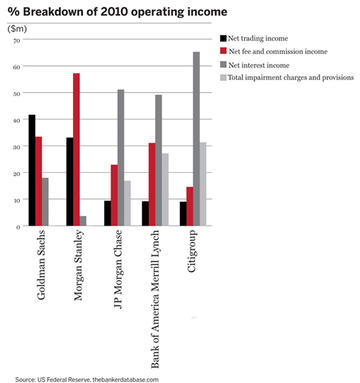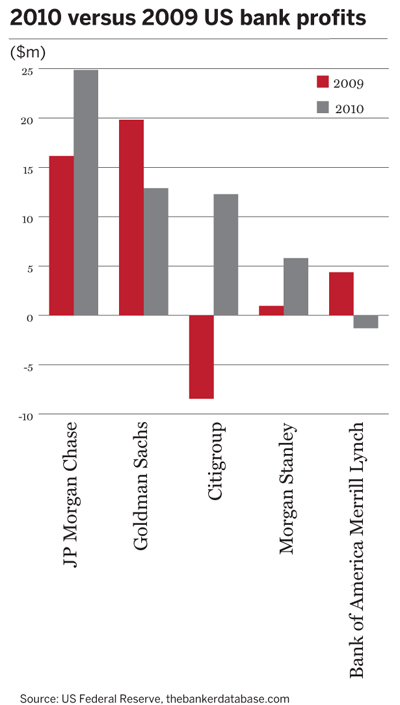It was a year of mixed fortunes on Wall Street in 2010, as Citigroup returned to profit, but Bank of America Merrill Lynch (BAML) slipped back into making a loss. Perhaps even more striking than the headline results are the wide differences between revenue sources.
When looking at the distribution of revenues, unsurprisingly, Goldman Sachs and Morgan Stanley have the highest proportion of trading income as a percentage of total operating income. But the benefits of Morgan Stanley’s purchase of a majority stake (soon to be a full buyout) of Citi’s retail brokerage Smith Barney are immediately clear. Fee and commission income for the bank topped 55%, whereas trading retains its lead in the Goldman revenue breakdown. While Goldman’s net profit was down 35%, Morgan Stanley’s rose fivefold, although one-off items such as the sale of its stake in China International Capital Corporation also played a part.
Citigroup is the only bank with more than 50% of its revenue deriving from interest income, and had to allocate close to 30% of its operating income as impairment and provisions, most probably deriving from growing non-performing loans on its $680bn loan book. BAML also suffered high impairment costs and their ‘on-balance-sheet’ loan book now amounts to close to $1,000bn.
JP Morgan increased its profits 53% and made the largest pre-tax profit in its history according to theBankerDatabase.com, at $24.8bn. It remains a balance sheet machine, with 50% of its revenues generated by interest income – exceeded only by Citigroup.




